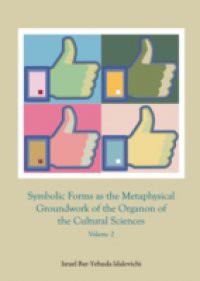This ambitious work reclassifies and restructures the history of ideas and the philosophy of culture through a wide-ranging and novel use of the idea of the organon. It does so by radically revising standard interpretations and theories of all branches of philosophy, and by providing an intellectual and philosophical foundation for the new organon of the cultural sciences. Furthermore, the seeded idea that saw its growth in the form of this book is the unshakable conviction that the only way by which a new apparatus of philosophy, an organon, could be created is by harking back to the vast sources of imagination, inspiration and mimA"sis. This entire study is based on the notion that metaphysics, insofar as it is concerned with the world in its entirety and with human being's existence and thought, should provide the foundation for the organon of cultural sciences, based on symbolic forms. Given that the colossal amount of information and knowledge of philosophy, arts, humanities, logic, mathematics, social sciences and natural sciences cannot be comprised, analyzed and comprehended per se, it is the organon's objective to extract the main principles, ideas, postulates, theorems and theories of the cultural sciences, and, subsequently, to shape and restructure them as symbolic forms. Since all these principles are grounded on Becoming-which is not a stable or fixed entity such as Being, substance or thing-the symbolic forms preserve and change, elevate and further the organon of the cultural sciences, via a critical-dialectical process.

